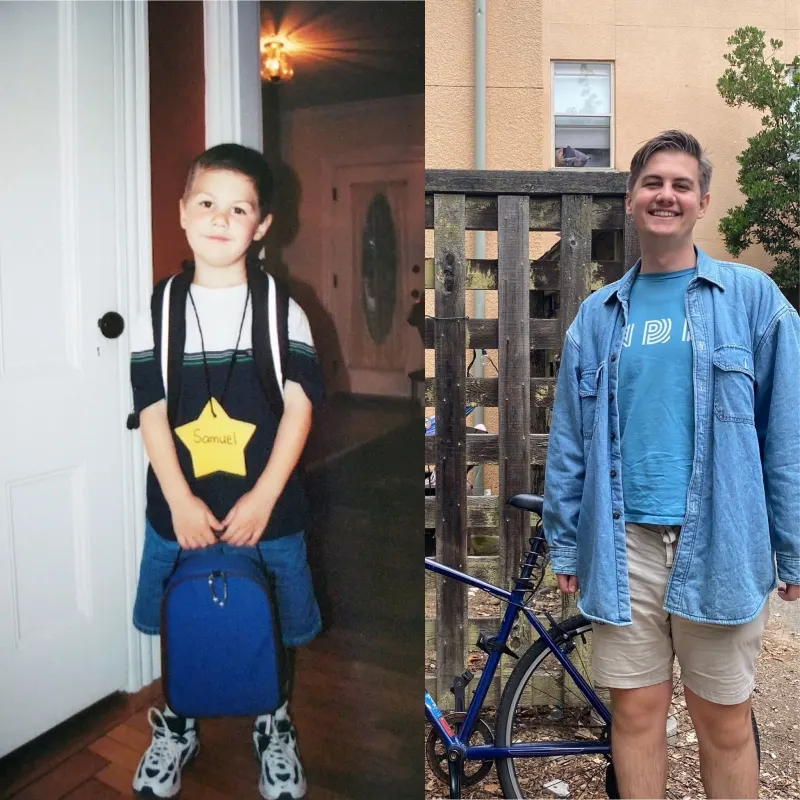It is easy to know how you’re supposed to feel when you start college, but harder when it ends.
The beginning of college is designed to make you feel lucky. Your RAs memorize your name. They tell you “Welcome home,” even though you’ve never seen it before. Even if you don’t feel excited, you know you’re supposed to.
By the end, you’re relieved, bored, tearful, jaded, happy, free, confused, and lonely at the same time. Some are ready to shirk their Stanford identity like a snakeskin, while others bask in the last glow of their golden college days. Your nostalgia surfaces, alongside Alumni Association emails asking you to begin the habit now of donating to Stanford.
In many ways, my whole experience has been leading up to this sense of bittersweet. My photo albums were always intended as instant nostalgia, pictures meant to make me feel like these light-streaked days would never last. I collected concert tickets, student flyers, event lanyards in a shoebox, knowing that one day these things would make me long for times gone by. Our freshman year, they had us write letters to our future selves, knowing it’d make us cry in senior spring.
At the same time that they gave us our freshman letters, the Alumni Association made a time capsule for our graduating class, a symbol of our Stanford legacy—a big transparent box that will go in Main Quad underneath our class plaque. Seniors slipped in Among Us plushies, photobooth strips, COVID tests, and handwritten notes. I put in a pub trivia sheet from a weekly friend tradition.
“Are we ever going to dig this up?” I asked the Alumni reps at the time capsule table. I imagined reminiscing with my friends one day as we comb through forgotten mementos.
“Well, just assume you won’t,” they responded.
“Really? I would’ve thought, at some reunion or something–” I said.
“Yeah, people keep asking at their fifty year reunions to see their time capsule, but you know. It costs too much to dig it out of Main Quad. You probably won’t see it again.”
Everything led up to now, and from now on, there’s no communal experience. We’re no longer waiting for another day of payoff.
College is a curated set of years, where a sense of freedom is calculated to balance parental concerns, student happiness, and profit margins. Things that felt like freedom over NSO begin to feel like constraint: wondrous dining halls, on-campus housing, and unstructured time become limited food choice, lack of renter’s rights, and an uneven life balance. The university says “Welcome home,” until they change the locks over Christmas break. You get the sense that you have gotten what college has to give.
In “Goodbye to All That,” an essay about leaving New York, Joan Didion wrote that “it was distinctly possible to stay too long at the Fair.” Once you’ve stuffed yourself with fried dough and ridden on the teacups, there’s only so much more for you to do.
At the same time, you recognize the insane luck you felt the moment you walked into Main Quad at golden hour. Even if it is a curated fair, it’s an elite one, offering privileges and thrills and interests you can’t find in any other square mile in America. Enchanting illusions lead to cutting disillusionment. It’s the thrilling conversations and friendships; the smell of eucalyptus and the swaying palms; the life of the mind and the wonder of learning. You begin to feel like nothing else can compare. The gilded cage still shimmers in a world of steel.
The only solution, as far as I can tell, is to cut yourself free. You must build for yourself the things that enchanted you most about university life. The friendships, the rituals, the readings. The communalism, the enthusiasm, the sincerity. We detach ourselves from the last remnant of structure in order to build our own.
The philosopher Simone Weil wrote in a letter about detaching yourself from the institution of the Church, but it applies just as well to Stanford:
An “imperfection comes from attaching yourself to the [university] as to an earthly country… You live there in an atmosphere of human warmth. That makes a little attachment almost inevitable. Such an attachment is perhaps for you that infinitely fine thread… which so long as it is not broken holds the bird down on the ground as effectively as a great metal chain. I imagine that the last thread, although very fine, must be the most difficult to cut, for when it is cut, we have to fly, and that is frightening. But all the same the obligation is imperative.”
Do not mistake this desire for independence as a lack of gratitude. On the contrary, it is my sense of gratitude that compels me to move on. These good days were artificial, so now I must try my best to create goodness for myself.
Our time has come. I feel it, and you do, too. Let’s cut the last thread and be free.
